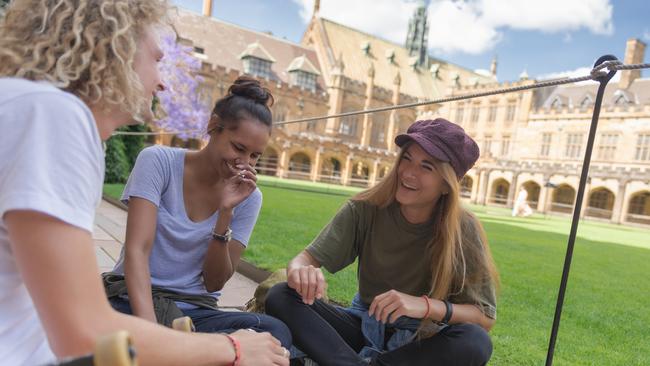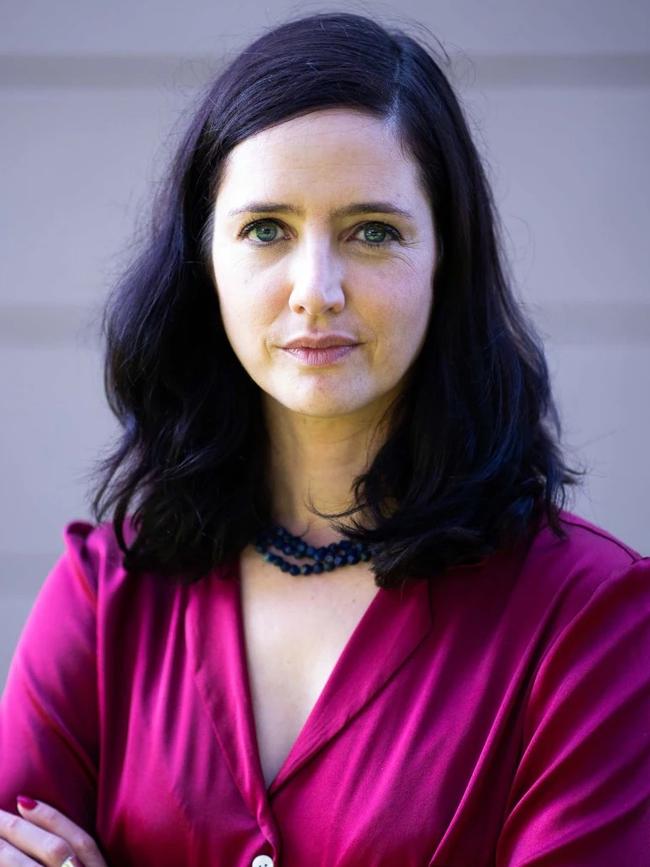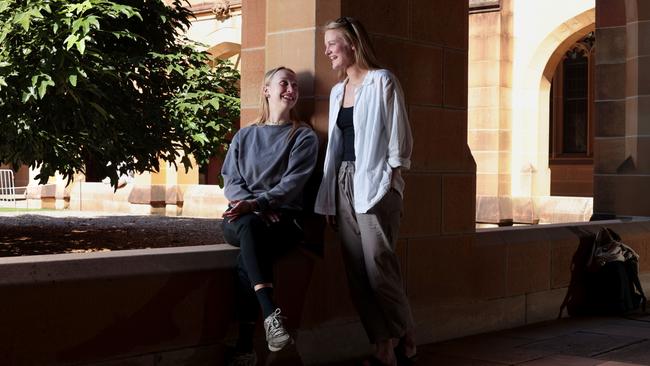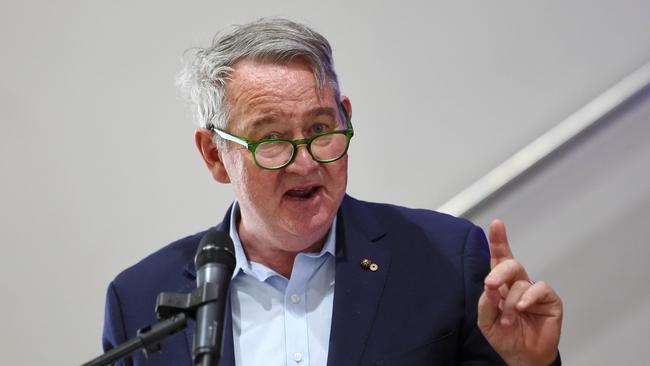Migration experts warn caps ‘disastrous’ without intervention
Universities need government funding offsets or privatisation to withstand international student cap revenue losses, experts say.

Migration experts warn that caps on international students will be disastrous without federal government funding offsets for universities, or privatisation.
Global migration expert Anna Boucher said international students were the “easiest way” to reduce overseas net migration, and the Albanese government was simply “addressing the section of the (migration) program they can legitimately address”.

But the University of Sydney associate professor said the caps needed to be coupled with a funding arrangement for higher education.
The government last week revealed universities would be allocated strict quotas for new international students from next year, as Federal Education Minister Jason Clare plans to limit the number of new international students to 270,000 to “set the system up in a better and a fairer way” and increase enrolments at regional universities.
The caps, which still need Senate support, sparked outrage from the sector, with the Group of Eight saying its universities would lose 22,000 international students – or 30 per cent of recruits – at a cost of up to $1bn.

“It’s an education bill operating through the immigration system. It will remove a very large source of revenue and that’s going to be really hard for the sector. If it were combined with a funding arrangement in the budget to offset it or even some privatisation, it might be better, because at present it is hard to have a sense of where the funding will come from,” she said.
“Without funding options, it’s going to be disastrous. But that’s what happens when you don’t fund the sector properly for a decade.”
Professor Boucher questioned the “ugly” process of universities deciding which students to cut: “Do you cut to sections that have an oversupply? Or are less profitable? That makes it the uni’s problem, when they aren’t the ones creating it,” he said.
Migration law specialist Christine Giles said the policy was “shortsighted” and “not based on facts”.
Mr Clare said last week that cuts were necessary because “shonks’’ had been “making a quick buck’’ from some international students who were using education as a “back door’’ to live in Australia.

She likened it to the response to refugees, saying there were myths perpetuated about the influx of asylum-seekers jumping the queue, their illegal status, and creating security threats, and there was similarly a public perception that international students had caused the nation’s housing shortage despite that being debunked.
“There appears to be a lack of understanding of the whole process with international students, because the policy is that they come, study and then leave. They take education home and benefit their own country … Some do stay but the reality is we only take the ones that we want,” she said.
Former Australian Catholic University vice-chancellor Greg Craven said the caps would “weed out” desperately-needed health workers, including aged-care nurses and speech pathologists.
The government previously announced tougher minimum English-language requirements for international students and a doubling of the non-refundable visa application fee in June.
“We get those workers from The Philippines, places like Nepal and India. And they are exactly the students that will be locked out by the government’s policy,” he said.
Professor Craven said those students usually came from relatively humble backgrounds and don’t compete for the sort of housing that is in crisis, while contributing massively to the work force.
Mr Clare said the caps were about “setting the system up in a better and a fairer way, so it’s not just a lucky few universities that benefit from international education but it’s the whole sector”.




To join the conversation, please log in. Don't have an account? Register
Join the conversation, you are commenting as Logout